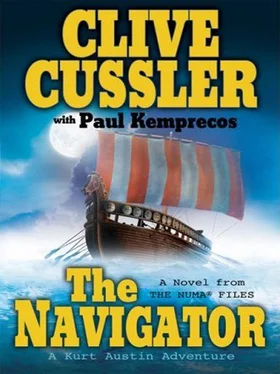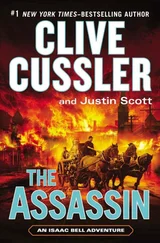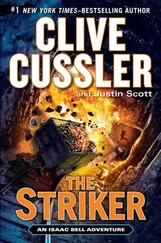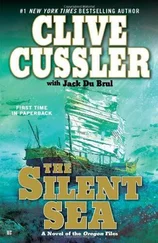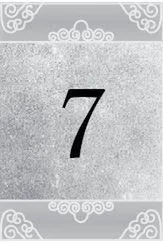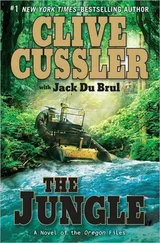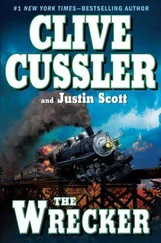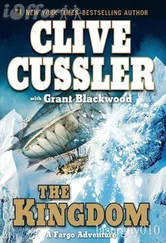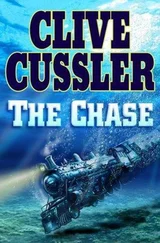Jefferson’s trunk had been vandalized on the last leg of the boat’s journey while ascending the river above Richmond. The thief had boarded the boat while it was tied up and the crew was sleeping on shore, the captain said. A trunk had been emptied. The captain handed Jefferson some mud-smeared papers, explaining that they had been found on the riverbank.
Jefferson stared at the wet wad in his hand.
Barely able to get the words out, he said, “Nothing else stolen?”
“No, sir.” The captain brightened at the opportunity to point out the silver lining. “Only the one trunk.”
Only the one trunk.
The words echoed in Jefferson’s ears as if they were being spoken in a cave.
“Tell me where you found this,” he demanded.
Moments later, Jefferson and his friends galloped off, and rode until they came to the river, then fanned out along both sides. After an intensive search, they fished out some papers that had floated ashore. Except for a few sheets, the mud-caked specimens of Indian vocabularies were water-damaged beyond use.
Later that summer, a petty thief and drunk was arrested and charged with the crime. The man claimed he had been hired by a stranger to steal the papers and pretend they were destroyed.
Jefferson was glad the culprit had been caught and might be hanged. He took no interest in the man’s fate. The scoundrel had caused him an irreparable loss. Jefferson had more pressing problems, such as tending his long-neglected fields and trying to figure out how to pay his mounting debts.
That was all changed months later when a letter arrived in the mail.
Jefferson had received several replies from the notes he had mailed from the White House to members of the Philosophical Society. All expressed their puzzlement at the word lists Jefferson had transcribed from the vellum. Except for one.
Professor Holmberg was a linguist at OxfordUniversity. He apologized for not answering Jefferson sooner but he had been traveling in North Africa. He knew exactly what language the words were written in and enclosed translations.
Jefferson’s eyes widened as he read Holmberg’s findings. With the letter in hand, he roamed his library and plucked volume after volume from his bookshelves. History. Language. Religion.
He spent the next several hours reading and making notes. When he had pushed away the last book, he sat back in his chair, tented his fingers, and stared into space. After a moment lost in thought, Jefferson silently mouthed a familar name.
Meriwether Lewis.
FATE HAD NOT dealt kindly with the man who had led the expedition that opened the floodgates of the American West to United States expansion.
Lewis was a man of extraordinary talents. Jefferson had been aware of his fellow Virginian’s qualities when he’d asked Lewis to lead the exploratory expedition to the PacificCoast in 1803.
Educated, intrepid, versed in the sciences, tough physically, Lewis was an outdoorsman familiar with Indian customs, and possessed of a sterling character. He’d been a well-respected army captain before he had come to work for Jefferson in the White House, where he added diplomacy, statesmanship, and politics to his quiver of talents.
The expedition had been successful beyond belief. After Lewis returned to Washington in 1806 with William Clark, the expedition’s coleader, Jefferson appointed him as governor of the LouisianaTerritory.
Lewis had reason to wonder, however, whether the appointment was a reward or a punishment. Even with all his talents and energy, Lewis had a hard time trying to tame the wild frontier. The explorer’s political enemies were relentless.
One night, after Lewis had spent another wearying day dealing with charges that he’d spent government money on a fur company in which he had an interest, he saw a sealed packet on his desk and immediately recognized Jefferson’s handwriting. Lewis had a smile on his hawk-nosed face as he slid a knife blade under the seal and carefully unwrapped the stiff paper that enclosed a stack of documents. The note inside said:
My Dear Mr. Lewis. Your gardens might benefit from the information contained within. TJ
The next page was entitled “The Cultivation of Artichokes.” The pages contained a detailed treatise, complete with planting tables and a garden diagram.
He spread the contents of the packet on his desktop, his brow wrinkled in puzzlement. Lewis knew of Jefferson’s interest in gardening, but it seemed strange that he would take the trouble to send information on artichoke cultivation halfway across the continent. He must have known that Lewis’s crushing responsibilities left no time for gardening.
Then the light of comprehension dawned on Lewis’s long face and his pulse quickened. He pawed through the shelves of a cabinet where he had stored the reports from the Lewis and Clark expedition and found what he was looking for within minutes.
Sandwiched between two bundles of documents was a sheet of heavy paper, which he extracted and held up to the light. The sheet was perforated with dozens of small rectangular holes, and, with trembling fingers, he placed the matrix over the first written page in the artichoke file and copied the letters that showed through the holes onto a separate sheet of paper.
When Jefferson had conceived the idea for the Pacific expedition, he knew that Lewis would be in a diplomatically sensitive position exploring territory held by France and Spain. Behind Jefferson’s sphinxlike imperturbability was a mind as devious as any to be found in the courts and palaces of Europe. In corresponding with his minister to France, he had often used a cipher, which he described as “a mask when we need it.”
While Lewis was in Philadelphia preparing for his journey with leading scientists from the Philosophical Society, Jefferson sent him a cipher he had worked up for the expedition. He based the encryption method on the Vigenere cipher widely used in Europe. The system involved an alphanumeric table and was unlocked with a key word.
Artichokes.
It had not been necessary to use the cipher during the expedition, which was why Lewis had been baffled at seeing it utilized. Casting questions aside now, he attacked the enciphered message with the enthusiasm he brought to all challenges. As he deciphered each letter from the gibberish, the words began to form before his eyes.
Dear Mr. Lewis: I hope this missive finds you well. I have taken the liberty of submitting this report to you in the enciphered form upon which we had agreed, with the goal that it should be for your eyes only, and for your sole disposition. I fear that the information enclosed, whether true or not, would excite certain passions, cause men to go into territory where they were ill-prepared to survive, and create problems with the Indians. I understood that you are fully engaged in the formidable task of placing a harness on the Louisiana stallion, but plead your assistance in resolving this matter.
Y’r ob’d’nt s’v’nt, TJ
Lewis deciphered the balance of the encrypted message. Then he went back to the garden diagram. The lines, Xs, circles, and words penned in an ancient language began to make sense of sorts. He was looking at a map—and something about it struck him as familiar. He pawed through dozens of his charts and documents and found what he was looking for.
Taking up pen and paper, he wrote a brief note. He thanked Jefferson for his gardening advice, and said he had located an ideal spot for his crop to flourish, then he told Jefferson that he would discuss gardening when he came to Washington to clear his name. Lewis planned to start down the Mississippi River early in September 1809. He would let Jefferson know when he had arrived in Washington.
It was not to be. Late that fall, Jefferson received a note from a Major Neelly saying that Lewis had died of gunshot wounds on the Natchez Trace wilderness road. He was only thirty-five.
Читать дальше
